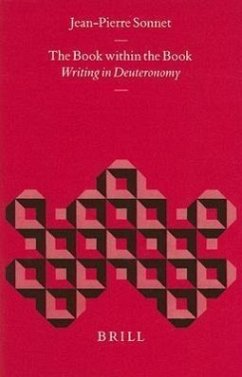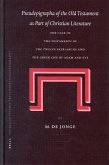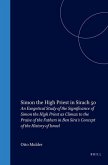This volume offers a fresh approach to an old issue: the question of Moses' authorship. Whereas traditional interpretation equated the "book" written by Moses (Deut 31:9,24) with Deuteronomy, and even with the Pentateuch, and while critical historical exegesis endeavors to identify Deuteronomy's successive redactors, this study assesses the "literary claim of Deuteronomy as far as Moses' writing is concerned. The study first describes the process of communication "in Deuteronomy's represented world (by Moses to the sons of Israel); it next characterizes the Book of Deuteronomy "as communication (by the narrator to the reader); it eventually focuses on Deuteronomy's powerful embodiment of the theme of the "book within the book." Thus approached, Deuteronomy shows itself as a narrative theory of what (holy) "writ" is all about.
Bitte wählen Sie Ihr Anliegen aus.
Rechnungen
Retourenschein anfordern
Bestellstatus
Storno



